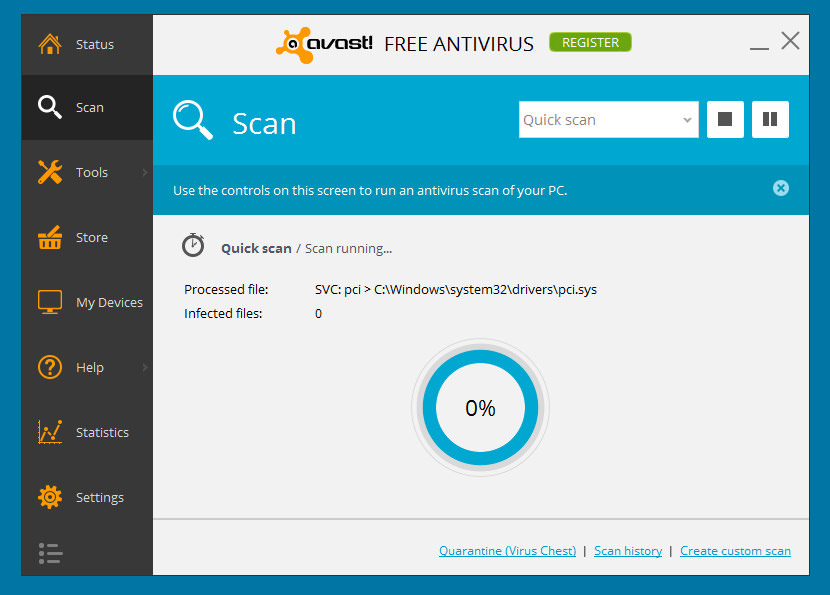
It also stopped me from sending out copies of viruses via e-mail in all three of those programs, but it didn't block one transferred via IM. That window, however, doesn't make any of its options - ignore the virus, delete it or move it to a "chest" of quarantined files - a default action, so hitting the Enter key just cues up the racket again.Īvast's scanning stopped viruses delivered through e-mail (in the Outlook, Outlook Express and Mozilla Thunderbird e-mail programs), Web downloads and instant messaging (old and new releases of AOL's AIM software). When you try to run a virus, a large window, illustrated by a flashing radioactivity icon, will alert you as a warning siren sounds and a recorded voice intones "Caution, a virus has been detected." After a refreshingly fast install, Avast automatically scans your computer for trouble before allowing Windows to boot up - a helpful precaution if the computer may already be infected.įrom then on, Avast's virus warnings are quick and unambiguous, if thoroughly annoying. With Avast (the major selling point is a greater sense of security. And both automatically download updates every day and allow quick manual updates. Both are relatively small downloads - almost 10 megabytes for Avast, just under 15 for AVG - that tout compatibility with systems as old as Windows 95. These two programs share a few welcome traits.


(Income from sales to businesses and organizations covers the cost of this exercise in Internet charity.) can be installed only on home computers that aren't put to any business or commercial use. But when put to the same tests as software from the Big Two, they did the job almost as well and with less fuss.īoth of these freebies - Avast 4 Home Edition, from Prague's Alwil Software, and AVG Free Edition, from Brno-based Grisoft Inc. and Symantec Corp., the two security developers whose programs come pre-installed on most Windows PCs. These no-charge downloads don't offer every feature provided by McAfee Inc. For several years, two Czech software developers have offered free versions of their anti-virus programs to home users. Getting a Web browser, e-mail program or photo organizer as free software on a computer is routine, but an anti-virus utility for Windows, the target of tens of thousands of viruses and worms? That seems the kind of thing for which you'd want to pay.īut you don't have to.


 0 kommentar(er)
0 kommentar(er)
